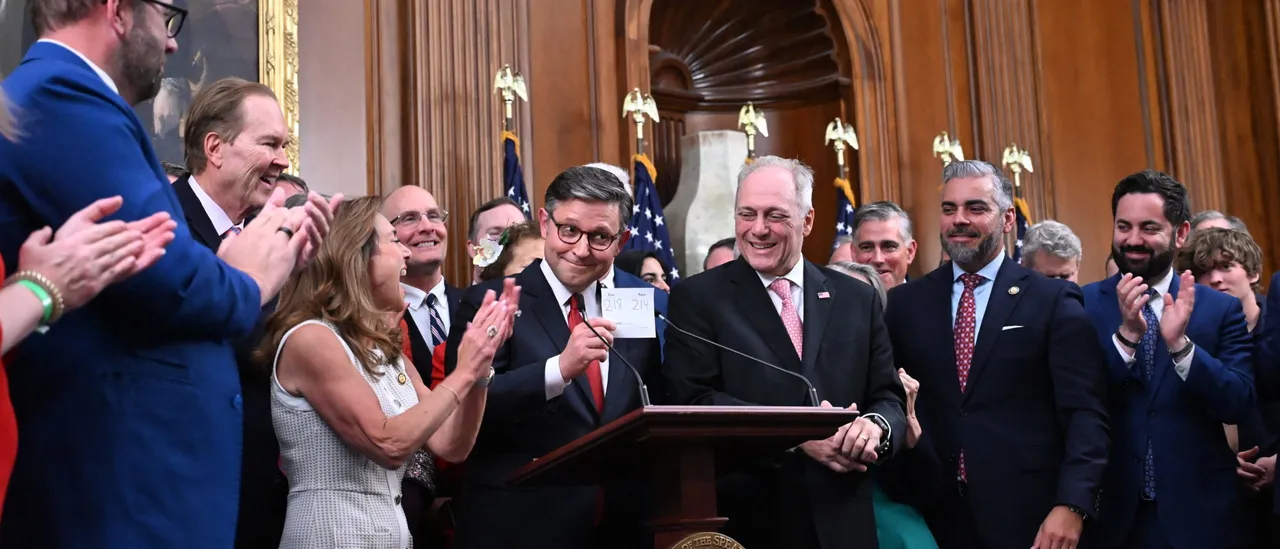
By Robert McGreevy. Media: Dailycaller
The House of Representatives’ passage Thursday of President Donald Trump’s “Big Beautiful Bill” flies in the face of media assertions that it wouldn’t pass by Trump’s July 4 deadline.
The House passed the Senate version of the “Big Beautiful Bill,” aka the “BBB,” defying media reports that a recalcitrant group of GOP defectors would send the bill back to the Senate with changes, jeopardizing a pre-Independence Day passage.
“The House and Senate will have to resolve their different versions and negotiate a unified version of the bill. (Or the House could accept the Senate’s changes wholesale and move to a final vote — which is unlikely.),” Axios’ Natalie Daher wrote Tuesday.
A unified agreement on the Senate version between both chambers, however, is exactly what happened, as the House sent the Senate version of the bill to Trump’s d
“He wants it on his desk by July 4 — just one week from today,” the outlet wrote Friday.
“Just one tiny problem with that: ‘Republicans’ ‘big, beautiful bill’ is in tatters,’ as our colleagues at POLITICO’s Inside Congress newsletter write this morning. Yes, technically, there’s still a path to meet that self-imposed deadline. But ‘technically’ and ‘likely’ are two very different things,” Politico’s Adam Wren wrote for Playbook.
Joining the chorus was The Washington Post, suggesting that “the easy part is over” after the Senate passed their version of the bill Tuesday.
“[T]he bill will head for a final approval by the end of the week. The process sounds swift — it is not. It can be delayed at numerous junctures by bands of holdouts. There have been several moments in Johnson’s speakership when bills appeared to be moving along smoothly only to be waylaid and subject to frantic renegotiation,” WaPo warned.
Aside from an eight-hour grandstanding episode from House Minority Leader Hakeem Jeffries, the process actually was pretty swift.
House Speaker Mike Johnson, Senate Majority Leader John Thune and Trump, who was reportedly an “omnipresent force” behind the bill’s passage, managed to assuage concerns from fiscal hawks and members of the House Freedom Caucus to get them to sign off.
The bill ultimately passed 218-214, with only Republican Kentucky Rep. Thomas Massie and Republican Pennsylvania Rep. Brian Fitzpatrick joining House Democrats in voting no.




























































































Discussion about this post